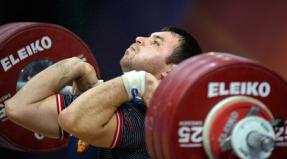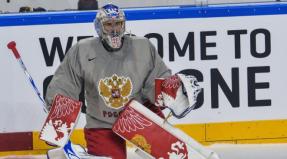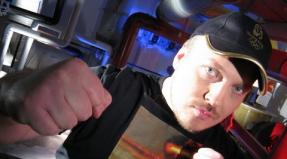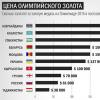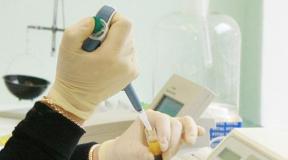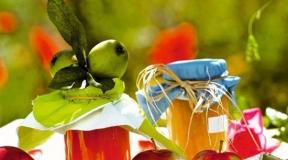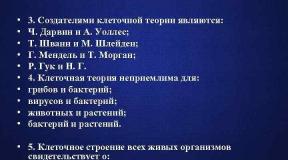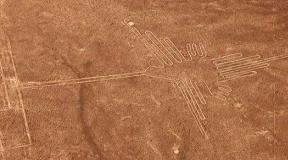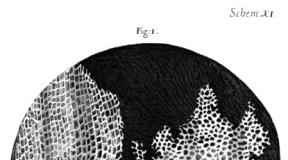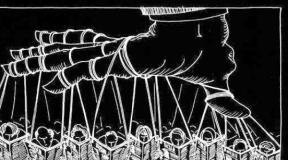Import substitution in agriculture. Import substitution succeeded: Russia can feed itself Ministry of Agriculture import substitution
Import substitution started in Russia on August 6, 2014 and turned out to be very useful for a Russian agricultural producer. The Ministry of Agriculture has calculated the effect of import substitution that has accumulated over 3 years. Achievements in the rural sphere and other industries will be clearly demonstrated on September 12-14, 2017 at the international exhibition "Import Substitution", which will be held at Crocus-Expo in Moscow.
Three years ago, as a response to Western sanctions against Russian companies and officials, restrictions were introduced in our country on the supply of food from these countries. The restrictions included meat of cattle, fish processing, cheeses, poultry and horticultural products. Food imports to Russia then amounted to $ 43 billion per year.
This was an excellent protectionist measure that cleared the path to the consumer for Russian producers. In agriculture, imports fell to $ 25 billion in 2016 (by 42%), while agricultural production in the country grew by 11% over the period.
Import substitution in agriculture was supported by additional injections of money from the state budget. In 2017, the amount of state support exceeds 242 billion rubles (+ 27% by 2014), in particular:
- 20-35% of the cost of re-equipment or construction of dairy farms, fruit and vegetable complexes, greenhouses, warehouses and breeding centers is reimbursed;
- You can get compensation up to 35% when investing in agriculture in the Far East;
- Subsidies for increasing the productivity of dairy production in the Far East, the Non-Black Earth Region and the Crimea increased by 20% (a multiplying factor of 1.2 was introduced);
- Costs for fruit and berry orchards are reimbursed (up to 2.5 billion rubles)
- You can get a loan at a rate of up to 5%, where the share of subsidies for small farms is determined by the region;
- A grant for opening a farm and agricultural cooperatives can be up to 3-30 million rubles, depending on the scale of the farm;
- Exporters can take advantage of the priority project “Export of agricultural products”: preferential loans, consultations, participation in foreign exhibitions.
In agriculture, import substitution was best achieved in the sales of pork and poultry, where the consumption of overseas meat decreased by 3 and 2.5 times, respectively. Vegetable imports fell by half. Minister of Agriculture of Russia A.N. Tkachev said: “In order to maintain the received impetus for development, it is important not to further reduce the volume of state support. This is the main incentive for investment in the agricultural sector ”.
The import substitution program in Russia poses a task for Russian manufacturers to create such high-quality products that would not only replace imports, but would also be attractive abroad and increase Russian exports. In other words, Russian goods and services must become competitive on the world stage.
The export of Russian agricultural products abroad in 2016 increased to $ 17 billion, in January-May 2017 it grew by 17% over the same period in 2016. “Russia can trade not only oil, but also become a leading world agrarian power, this opens up great opportunities for the dynamic development of the economy as a whole,” the Minister expressed his hopes for the growth of exports. By 2020, the export of agricultural products should be $ 21 billion / year.
The exposition "Import Substitution" in 2017 will feature products of domestic manufacturers in such areas as the agro-industrial complex (AIC), mechanical engineering, the oil and gas sector, and consumer goods. They will be represented by both the manufacturers themselves and the regions in which they produce it. They will be joined by officials responsible for creating an environment in which import substitution can be implemented without bureaucratic barriers.
Sources:, Ministry of agriculture
Relations between Russia and the West remain complex. It has been almost three years since the sanctions were imposed. They were supposed to damage the Russian economy. But one thing was left out in Washington. There is a golden rule of success: use any problem as a chance to improve something and reach a new level of development.
Since the beginning of the sanctions war, import substitution processes have been launched in Russia. This affected all sectors - from industry to agriculture. Why buy something from ill-wishers if you can do it yourself? Today our program is dedicated to import substitution in the food sector.
When sanctions are imposed on small countries, it is painful and devastating. Iraq, Syria, Libya, Zimbabwe, Iran and many other small states have been hit hard by the sanctions, and their economies have been hit hard.
But for large countries, sanctions have very different consequences. It hurts at first, but there are many resources, and protection mechanisms are immediately activated. As a result, after a few years, the country achieves self-sufficiency and benefits from sanctions. Industries that have been hit by restrictions seek autonomy and eventually become autonomous.
An example is China. In the late 80s, sensational events in Tiananmen Square. Sanctions were imposed on China. Many companies were banned from trading with China, Chinese banks were cut off loans in the West, the Americans imposed an arms embargo and limited access to high technology. 
After a while, many sanctions were lifted, but they were introduced against individual Chinese companies for various reasons in the 2000s. You know perfectly well what happened to the economy of the Celestial Empire as a result. Now it is a financial and industrial giant. Whatever branch of the national economy you take - any is highly developed.
In Russia, import substitution in the food sector began in 2013 - a year before the annexation of Crimea. It is provided for by the program for the development of agriculture until 2020. It includes, among other things, accelerated import substitution for meat, milk, vegetables, potatoes, fruits and berries.
Even then it was clear that the West was looking for an excuse to harm Russia and was ready to find fault with anything, remember “ Magnitsky list ", Which means you need to protect yourself. So the 2014 sanctions only accelerated the import substitution process. When Vladimir Putin introduced the food embargo against Europe and the United States, he knew that much had already been done in agriculture, so there would be no serious problems, and the positive effect would be huge.
In addition, the food embargo did not affect the means of production. For example, fish cannot be imported to Russia, but fry can be, because they are needed to breed their own fish. 
Vegetables and fruits are not allowed, but seedlings are allowed. Seed potatoes, which are not for food, but for planting, are also allowed, because they will already give birth to their own potatoes in the Russian field. 
The same goes for sowing onions, live birds and hatching eggs from which chicks will be born. All these are not finished products, but means of production. You can import them. In addition, the import of beef, poultry and vegetables is allowed, from which baby food will be produced on the territory of Russia itself.
Last year, Russia sharply reduced the import of food from abroad: meat, poultry, fish, milk, potatoes, tomatoes, onions, cabbage, grapes, apples, sugar. The table shows how much we managed to reduce these purchases: for cabbage, potatoes and sugar - by half! 
Russian retail chains confirm that the share of Russian vegetables in their turnover is increasing. In particular, the Dixy retail chain has increased the share of domestically produced cucumbers by one and a half times, now the percentage of Russian cucumbers sold here is 89%, and of tomatoes - 73%. 
The decrease in imports is associated with an increase in production. Let's look at the statistics of Rosstat for individual goods. Cattle meat is now produced 260 thousand tons per year. Compared to 2013, an increase of 10%. 
For pork, the rise is more impressive - up to almost 2 million tons per year. For 4 years, the plus was 50%. 
Russia was very dependent on pork imports five years ago. Only Japan bought more pork than we did. Now our country has become an exporter itself, although import from other countries still remains, for example from Brazil. The successes of Russian farmers have even brought down world pork prices. This was noted by the USDA. 
And here is the table on Russian pork, which is given by the Bloomberg agency. There was an increase in production and a drop in imports. 
Growth is also observed for poultry meat. For 4 years, almost a quarter. 
And - as a result - an increase in exports to other countries. 

Including - halal meat in Qatar and the United Arab Emirates. Halal means meat prepared according to Islamic traditions.
By milk I will also note growth, albeit modest - only 2% compared to 2013. 
But there is a peculiarity here. The main foreign supplier of milk to our country is Belarus. The food embargo does not apply to it, so the conditions on the dairy market have hardly changed. Nevertheless, our dairy exporters are showing success. They are increasing sales to other countries and expanding the list of contractors. Russian milk is sold even to Europe - Germany, Romania, Bulgaria and Latvia. 
In crop production, the loudest successes are in the cultivation of grain crops, mainly wheat. Over the past 5 years, grain production has grown by an average of a quarter a year. 
Now Russia is actively increasing grain supplies abroad. Last year, we became the world leader in wheat exports. Even more. We are winning markets from the United States. Russia is increasing supplies to Mexico and Brazil. This is the underbelly of the United States, a traditional market for them. 
There are also tangible shifts in other areas of crop production. Compared to 2010, it was possible to significantly increase the production of vegetables and potatoes. Rosstat counts them separately. 

This is the basis of the diet. Let's take the volume and divide it by 146 million Russians - both children and adults. Now in Russia vegetables plus potatoes are produced according to 1 kilogram per day per person
... Taking into account the positive dynamics, this figure will grow every year.
Another episode of the food embargo. This is a continuation of the thought about the right timing for the response. Initially, there was no ban on the supply of salt to Russia. The food embargo on salt was not applied. The government knew that Russian salt producers were not ready to completely replace imports. But two years have passed. The capacities increased, and in 2016 it became possible to extend the product embargo to this product as well. This happened at the end of the year - in November. 

Most of all, these measures hit Ukraine, it completely lost the Russian market of salt, both food and technical. Other suppliers that have closed doors are the Netherlands and Denmark. At the moment, Russian manufacturers occupy 65%
domestic market. There is no complete import substitution, we still buy salt from Belarus and Kazakhstan, but in 5 years import substitution may become 100%.
Intensive gardening plays an important role in import substitution. Its main feature is low fruit trees planted in dense rows. 
They begin to bear fruit very quickly - already in the second year after laying, and in the third year you can get a harvest of 35-40 centners per hectare. It is much faster than in conventional - classic gardens. It takes much longer to wait for the first results there.
The collection of fruits and berries in Russia has been growing for the last 5 years, but it has not set records in comparison with the 90s. In this graph, you see data up to 2015. 
The curve is at high levels, but did not break the 1996 maximum. However, now this area is receiving an additional - a very powerful impetus for development. Fruits and berries from Europe have ceased to reach our counters, and domestic producers are in a hurry to fill this niche.
In 2015, a large number of new garden plantations were laid - 14 thousand hectares. Of these, 10,000 are intensive gardens. Last year, farmers continued to expand the area for berries and fruits. 


The result is already there - fortunately, intensive gardening yields a harvest already next year. 


According to the President of the Fruit and Vegetable Union of Russia Sergey Korolev, the share of imported apples will decrease to 7% by 2020. 
Now the shortage of their apples is about 1 million tons
... It has to be closed with supplies from other countries. To reach self-sufficiency, it is necessary not only to lay new gardens, but also to build fruit storage facilities. This will allow apples to be sold all year round, not just in the fall.
The state allocates a lot of money for the development of horticulture. They go into the hands of gardeners in the form of cash subsidies. The state compensates farmers for part of the costs of establishing new plantations and caring for existing ones, purchasing planting material, building and reconstructing fruit storage facilities. In total, for 2017, subsidies are provided for all types of agricultural activities in the amount of 75 billion rubles. 
At the end of the program, a few words about import substitution in Crimea. Our conditions for this have developed naturally. Played a role food blockade on the part of Ukraine, and later on the fact that Russia extended a food embargo to Ukraine. The second factor is geographic. Products from the Krasnodar Territory to Crimea are transported by ferry. This increases their value. Another factor. Relations with Turkey improved, but the food embargo was lifted only on Turkish citrus and stone fruit crops. Other fruits and vegetables are still not allowed from there. All this had a beneficial effect on the Crimean producers. Production capacities for all types of traditional agriculture are growing in Crimea. Over the past year, the number of cattle, sheep and goats has increased, and more eggs and milk have been produced. New horticultural and viticultural enterprises are being opened within the Free Economic Zone. The guests of Crimea celebrate the wonderful taste of our fruits and vegetables, because they are environmentally friendly. 



Russia continues to buy an impressive amount of meat, fruits and vegetables abroad. This indicates the presence of large domestic demand. There is no doubt that the development of agriculture within the country will sharply reduce the flow of goods from abroad. Our farmers bring this time closer by their labor every day. That's it for today. I wish you great economic success.
Video of the program:
Expert of the Center for Scientific Political Thought and Ideology Lyudmila Kravchenko
From the repeatedly declared slogan of import substitution in agriculture, which the authorities used to justify the imposition of an embargo on food supplies, which provoked inflation, in an attempt to actually strike back at Europe, practically nothing has been realized. First, an analysis of federal budget expenditures shows that funds for agriculture in the planned amount are not only not allocated, but even reduced (Fig. 1), although the prime minister assured that additional money would be found in any case. The only victory of the agrarians in the new budget is the refusal of the authorities to introduce a tax on profit of agricultural enterprises, although D. Medvedev did not rule out such a possibility in the future.

Fig. 1. Data on financing of the State Program for the Development of Agriculture and Regulation of Agricultural Products, Raw Materials and Food Markets for 2013–2020.
Secondly, the Order of the Government of 02.10.2014 No. 1948-r "On approval of the action plan (" road map ") to promote import substitution in agriculture for 2014-2015" is actually a plan for writing plans by the end of 2015, when the bans are lifted, loud patriotic slogans are forgotten. All initiatives in the field of import substitution, according to the order, are to prepare amendments to the relevant laws and state programs by September 2015. For example, amendments to the Food Security Doctrine will be introduced only in the IV quarter of 2015.
The problem of agricultural development is much broader than issues of food security: support for domestic producers will not only allow the country to reach the level of self-sufficiency (as it was in the USSR), but will also revive the village, stopping its extinction. But this requires not paper plans, but real actions. The country has a successful experience in solving these issues - this is the activity of consumer cooperatives, headed by the Central Union. In Soviet times, consumer cooperatives performed many functions that allowed the country to support rural producers and provide the population with domestic food.
Firstly, it is the purchase from the population, state and collective farms of vegetables and fruits, raw materials (leather, fur), dairy and meat raw materials, wild crops (berries, mushrooms, medicinal herbs). Thanks to a stable and guaranteed system of purchases, the population received guarantees for the sale of their products for the future. In rural settlements, procurers announced the days and places of reception, where the population sold surpluses at a fixed (fair) price. This allowed the inhabitants of rural areas to engage in subsidiary farming, not to leave the village in search of labor earnings.
Secondly, the production of food from purchased agricultural raw materials (vegetable processing enterprises, bakeries, breweries, etc.), as well as the production of non-food products. Thanks to this chain, the manufacturer received raw materials at the purchase price, then there are numerous chains of intermediaries being eliminated. The price of produced food products turned out to be significantly lower than imported ones, the quality remained high, since all enterprises had strict rules for monitoring compliance with state standards. The proceeds received were used to expand production capacities, that is, to invest in fixed assets.
Thirdly, trade, and in fact, the provision of all the republics of the Union with the necessary raw materials. The single center received information on surplus and shortage of raw materials by region. The cooperative sold raw materials to another consumer cooperative, delivery was carried out through a single transport system. She also acted as virtually the only retailer in the countryside.
Fourth, this is the provision of a wide range of services - educational (institutions of cooperation), services of a domestic nature in rural areas, the provision on a contractual basis of compound feed, equipment and other material and technical resources.
In recent years of the Union, consumer cooperation served 40% of the country's population. She harvested about half of the potatoes, carried out a third of the purchases of vegetables, produced more than a third of the baking of bread. Served as the largest taxpayer in the country. Thus, the system of consumer cooperatives solved several super-tasks at once: ensured food security, rural development and maintenance of the standard of living of rural citizens. It covered all the links in the chain: from ensuring the confidence of the agricultural producer to the purchase of raw materials and their redistribution throughout the country.
In the 90s, the system was paralyzed: private buyers came to the village, who could not guarantee the annual purchase. Hyperinflation devalued the circulating assets of consumer cooperatives, the purchasing power of the population fell, as a result, many cooperatives became unprofitable. The orientation of the economy towards the raw material component already in the 2000s, the destruction of production capacities led to an increase in imports, from this the system of consumer cooperation, which was already in crisis, turned out to be practically useless to anyone. However, the presence of large assets, which the consumer cooperation had at its disposal since the times of the USSR, led to a redistribution of resources, as a result, the man of the system became the head of the consumer cooperation. The Tsentrosoyuz turned into an organization far from the regional consumer unions, and the indicators of its activity went down.
Now the representative offices of consumer cooperation operate throughout the country, but the scale and efficiency of their activities cannot be compared with the Soviet era. Throughout the post-Soviet space, this system has been preserved only in Belarus, which is not only self-sufficient in agricultural raw materials and food, but also actively exports it.
For Russia, restoring successful experience would be the most effective and least costly way to carry out a large-scale import substitution campaign. Below are the priority measures to stimulate the development of agriculture through the restoration of the system of consumer cooperation.
1. It is necessary to finance consumer cooperation from the budget, attract private investors (shareholders), provide soft loans (in Soviet times, consumer cooperation loans were issued at 1%). The funds received will be directed to the working capital fund for the purchase of raw materials from the population. After three years of constant work, the population will increase production, subject to additional measures in the form of soft loans for the purchase of agricultural machinery, facilitated procedures for the sale of land.
2. A system for collecting information on needs and production volumes by region should be debugged.
3. There must be well-developed logistics to optimize flows. Coordination with the Russian Railways is necessary, it is possible to subsidize transportation, as it was before 1991, when the state covered about a third of transportation costs for the delivery of raw materials and materials through consumer cooperation.
4. Stimulating production by consumer cooperatives through the introduction of preferential taxation in comparison with enterprises producing products from imported raw materials, regional representative offices of foreign companies.
5. Tightening of GOST standards for the food industry, the introduction of mandatory labeling contains / does not contain GMOs for all food products, the introduction of a ban for cooperatives to purchase GMO products and produce GMO containing goods.
6. Development of a roadmap for purchasing agricultural products from the post-Soviet republics. This will allow you to solve several problems at once. First, Russians will not have to consume low-quality Chinese products. Secondly, the prices for imported goods that are not produced in Russia will decrease due to the optimization of transport routes. Third, the geopolitical strengthening of the country in the post-Soviet space, an alternative to the penetration of Chinese capital into the region.
However, it is unlikely that such a restructuring is possible in the current economic model. He needs a strong will, a willingness not to save, but invest, high professionalism of managers. A likely scenario is the abolition of the embargo, continued focus on imports (now predominantly Chinese), the implementation of the WTO agreements (most duties will be reduced by 2017), the readiness to support the Russian agricultural producer only in words, the correction of statistical reporting by Rosstat and several demonstration measures in this area. pre-election year 2018.
Tea, coffee, exotic crops are successfully grown in Russia, using the experience of other countries' agriculture. Nevertheless, it is not yet possible to speak about the full satisfaction of the country's needs in various spheres.
Traditionally, the most profitable business projects in Russia are considered primary processing of raw materials, trade, and construction. At the same time, our country is firmly connected with the image of a raw materials giant, which on its own is not able not only to dress and shoe its citizens, but also to feed them corny. And although the course towards import substitution in agriculture was announced a few years ago, we never saw a large number of domestic nectarines and pineapples on the shelves. What is really going on in the industry? Are there examples of successful import substitution?
Russia's need for foreign products in agriculture is more than just dependence. The sphere of vegetable growing uses up to 60% of imported seeds, in potato growing - up to 80%. In winter, 90-95% of the vegetables consumed by Russians are imported from abroad.
KFH "ZHAK"
Region: Tula region
The farm supplies a large number of products: potatoes, cabbage, beets. For 11 years of active work, the area of cultivated land has increased from 40 hectares to 11,000 hectares. The enterprise boasts a significant production volume: over 90 thousand tons of potatoes, about 200 tons of meat products, 6 thousand tons of milk. The warehouses of the organization are equipped with equipment from European suppliers, which ensures high quality of goods.
In the summer of 2015, the company made headlines with the launch of the largest sprinkler in Russia. The complex irrigates about 11% of all the company's land (1,100 ha). Experts also note the high yield of grain crops: it exceeds the regional average values by 2-3 times (80 centners per hectare against 32).


Cheese dairy "Russian Parmesan"
Region: Moscow region
An unusual project by Oleg Sirota, a former programmer, attracted a lot of attention at the very beginning of its creation. The young man sold real estate, cars and left for the village, where in about a year he built a cheese production workshop. Even such meters of domestic journalism as "Komsomolskaya Pravda" paid attention to the implementation of the project. The launch of production by O. Sirota coincided with the anniversary of the "counter-sanctions" and decided to earn popularity points at this event.
It is too early to talk about any profit, since the cheeses have been created only since August 7, 2015. However, one cannot fail to note the enthusiasm and stubbornness of the farmer-programmer: it took him only 12 months to make his dream a reality. O. Sirota is going to offer the Russian market not only yoghurts, but also parmesan, which will fully correspond to its European counterpart. As the cheese maker notes, to create a production he used purely Russian equipment, products and technologies.
At the same time, in some of his publications, he told how he traveled to Switzerland for experience, which, as you know, joined the sanctions against Russia. The total investment (personal funds of O. Sirota) amounted to about 12 million rubles. It is planned to sell a kilogram of the finished product for 650-700 rubles.

Do you want to know how a Russian cheese maker made his dream come true? Then be sure to watch the story about his plant on the Russia 24 channel.
LLC "Greenhouse complex" (Mokshansky)
Region: Penza region
The organization became famous for the production of real Dutch roses in Russia. At the moment, the company has a whole network of greenhouses with a total area of 24 hectares. Over the past year, the company has grown 23 million roses, the total number of varieties - more than 70 units. Thus, the Penza region is largely provided with fresh flowers of domestic production.
The organization was created long before the imposition of sanctions about 10 years ago. In order to improve the quality of products and achieve high results, the company sends its specialists for training to Holland, uses modern equipment in its work. The plans of "Mokshanskaya Rose" are to master the production of other flowers, which will also be able to decorate the holidays of customers.


Farm "Ostrich Farm"
Region: Leningrad region
Breeding ostriches in Russian conditions has long ceased to be a utopia. Peasant farm V.V. Vigovsky is a vivid confirmation of this. The farm grows and sells various products: ostrich eggs, poultry meat, creams, leather, feathers, souvenirs. In addition, year-round excursions are available to visitors, even in frosty winters.
The high popularity of ostrich meat is evidenced by the fact that a preliminary registration is required for its purchase. The cost reaches 1690 rubles per kilogram, while an egg is about 1.500 rubles apiece. By the way, a bird about 1 month old costs 6-15 thousand rubles, so you can create your own farm with a relatively small start-up capital. However, experts note the high capriciousness of the ostrich and the need to comply with the special conditions of its cultivation. However, poultry meat is in wide demand in Russia: our citizens do not suffer from vegetarianism.

JSC "Adler Tea"
Region: Krasnodar region
The company, founded in the days of the USSR, produces tea in the Adler region. The organization produces its own raw materials and processes imported ones. In addition to tea, the company grows hazelnuts, persimmons, laurel, bell peppers, eggplants and other crops that are difficult to care for even in hot climates.
Despite its long history, a large number of areas of activity, JSC "Adler Tea" cannot boast of high profits. So, in 2014, losses amounted to about 9 million rubles, although just a couple of years ago the organization showed net income. At the same time, the revenue in 2014 amounted to 21.2 million rubles (for 2013 - 35.6 million rubles). In the near future, it is planned to increase the area for growing subtropical crops to 100 hectares, as well as to build a new greenhouse complex.

One of the consequences of import substitution is a sharp decline in imports in June 2015. Thus, purchases of meat and food in the 6th month decreased by 49.5% compared to the same period of the past, vegetables - by 46%, fruits - by 32.4%, grain - by 66.5%. However, experts note the twofold nature of this event: not only a decrease in imports, but also a decrease in the commodity and consumer market.
LLC "Velle"
Region: Leningrad region
The company "Welle" is, rather, not import substitution in its pure form, but an example of how Western technologies can take root on Russian soil, bringing worthy fruits. The organization is engaged in the production and sale of oatmeal-based products. So, desserts, cocktails, ready-to-eat breakfasts, drinks and much more are available to customers. The company was founded in 2004, and at the moment has achieved high indicators of financial and economic activity.
Revenue in 2013 amounted to 464.4 million rubles (56% more than in the previous year), net profit - 27.1 million rubles (an increase of 100%). At the same time, the company operated only 9 years ago with an annual revenue of 43.8 million rubles and a loss of 4 million rubles. In 2014 alone, the organization passed 3 different checks and is characterized by a high level of sustainability.


LLC "Agrofirma" Razdolye "
Region: Penza region
The agrarian company has chosen such an import substitution project as strawberry production. 1.5 hectares were allocated for the berries, and 4 varieties of plants went on sale. Their average cost was about 160 rubles in July 2015, which is much cheaper than imported counterparts. At the same time, the customers liked the taste of the product, which were highly appreciated.
Agrofirm Razdolye has been on the market for a long period of time and has impressive financial performance. For example, revenue in 2013 amounted to about 10 million rubles, net profit - about half a million.

So, import substitution in agriculture is a huge number of projects that surprise with their boldness and diversity. It should be noted that businessmen do not fully use the potential of the information space, but in vain: the domestic consumer is obliged to know their heroes.
